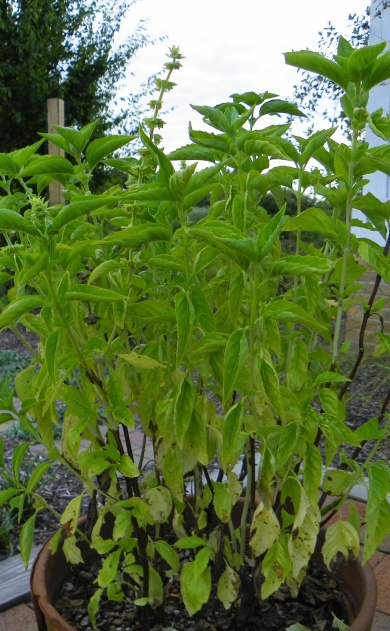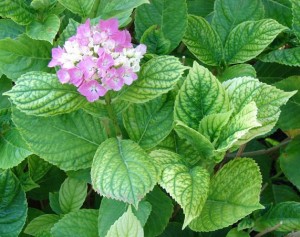How Soil Testing Can Help You
go.ncsu.edu/readext?181764
en Español / em Português
El inglés es el idioma de control de esta página. En la medida en que haya algún conflicto entre la traducción al inglés y la traducción, el inglés prevalece.
Al hacer clic en el enlace de traducción se activa un servicio de traducción gratuito para convertir la página al español. Al igual que con cualquier traducción por Internet, la conversión no es sensible al contexto y puede que no traduzca el texto en su significado original. NC State Extension no garantiza la exactitud del texto traducido. Por favor, tenga en cuenta que algunas aplicaciones y/o servicios pueden no funcionar como se espera cuando se traducen.
Português
Inglês é o idioma de controle desta página. Na medida que haja algum conflito entre o texto original em Inglês e a tradução, o Inglês prevalece.
Ao clicar no link de tradução, um serviço gratuito de tradução será ativado para converter a página para o Português. Como em qualquer tradução pela internet, a conversão não é sensivel ao contexto e pode não ocorrer a tradução para o significado orginal. O serviço de Extensão da Carolina do Norte (NC State Extension) não garante a exatidão do texto traduzido. Por favor, observe que algumas funções ou serviços podem não funcionar como esperado após a tradução.
English
English is the controlling language of this page. To the extent there is any conflict between the English text and the translation, English controls.
Clicking on the translation link activates a free translation service to convert the page to Spanish. As with any Internet translation, the conversion is not context-sensitive and may not translate the text to its original meaning. NC State Extension does not guarantee the accuracy of the translated text. Please note that some applications and/or services may not function as expected when translated.
Collapse ▲Excessive summer rain has removed many nutrients from soils in southeastern NC. Symptoms of nutrient deficiency include stunted growth, yellow or purple leaves, excessive shedding of older leaves, reduced flowering, and poor flavor in vegetables. If you have observed any of these symptoms on plants in your yard soil testing can help you get to the root of the problem and tell you how to fix it.
Simple and Informative!
North Carolina is one of the few states to offer soil testing at no direct cost to its residents most of the year. Samples submitted between April 1 and the end of November are free of charge. A peak season fee of $4 per sample is charged for each sample submitted between December 1 and March 31.
Boxes and forms for sampling are available from any Cooperative Extension center. Completed samples should be mailed to the N.C. Department of Agriculture’s soil testing lab in Raleigh, whose address can be found on the soil sample box and form.
Soil samples can be submitted for testing any time of the year. Results are usually ready within a few weeks and are posted online (learn more). Collecting soil samples only takes a few minutes, can help you save money in your lawn, garden and landscape, and can result in healthier plants by telling you which nutrients are already in your soil and which ones you need to add. If nutrients are needed, they can be supplied with either natural or synthetic fertilizers.
One of the most important things the soil test measures is soil pH, or how acidic or basic your soil is. Soil pH levels in our area range anywhere from 3.5 (very acidic) to 8.0 (basic) or higher. Most plants prefer to grow in soils where the pH is 5.5 to 6.5. Soil testing is the only way to know if your soil is too acidic and if you need to add lime to raise pH. Many people apply lime unnecessarily, which can raise soil pH too high, resulting in poor plant growth.
Soil test results will also tell you which nutrients you need to apply for the type of plants you are growing. If you have soil tested in the past and had trouble understanding the soil test report, there is good news. The N.C. Department of Agriculture recently unveiled a new report format that is much easier to understand. It features bar graphs that show your pH and nutrient levels and provides several alternative fertilizers you can use, in case you cannot find the specific one they recommend. Reports from samples submitted in the past three years are available in the new format from the NCDA PALS website: http://www.ncagr.gov/agronomi/pals/
How to Test Your Soil
To have your soil tested, collect samples from different areas of your yard. You will need to collect three to five random samples from each section of your yard where you are growing something different; for example, 3 to 5 samples from your lawn, 3 to 5 samples from your vegetable garden, etc. Samples should be collected with a stainless steel trowel and need to be taken around 6” deep. For each sample you are going to submit (example – lawn, garden, flower bed), aim to collect a total of about a cup and a half of soil when the 3 to 5 random samples are mixed together. If there are areas in your yard where plants are not growing well be sure to sample them separately to find out if the problem is nutrient or pH related.
When complete, your results will be posted online at http://www.ncagr.gov/agronomi/pals/. Soil test results will not determine if there are diseases or herbicide residues in your soil, or if poor drainage or soil compaction are causing plant problems. If you suspect these issues contact your local Cooperative Extension office for advice.
Learn More
Learn more about soil pH, lime, fertilizer, and other soil issues from these recent articles:
More information about soil testing is available online from the N.C. Department of Agriculture’s website at http://www.ncagr.gov/agronomi/sthome.htm.
Visit your local Cooperative Extension office to learn more about gardening and landscape care. Go to https://www.ces.ncsu.edu/local-county-center/ to find your county Extension center.
Contact your local Cooperative Extension office to get expert advice:
- If you live in Pender County, call 910-259-1235
- In New Hanover County, call 910-798-7660
- In Brunswick County, call 910-253-2610
- In Onslow County, call 910-455-5873
- In Duplin County, call 910-296-2143





